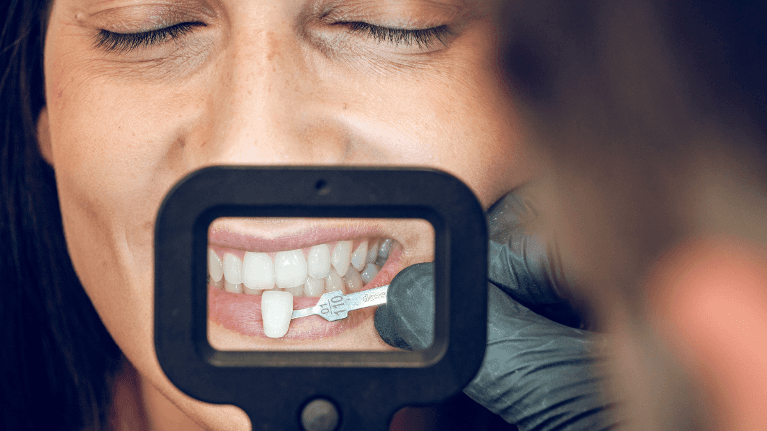
The popularity of dental veneers continues to soar as more people seek minimally invasive ways to improve their smiles. Still, anxiety lingers about what veneers truly mean for natural teeth. Are the fears of permanent damage or weakened teeth justified? If you’re considering veneers, this in-depth guide explains the facts—so you can make your decision with confidence.
What Really Happens During Veneer Treatment?
Veneers are ultra-thin covers designed to enhance the appearance of the front surfaces of teeth. Unlike traditional crowns or caps, which may enclose the entire tooth, veneers require just a light reshaping—only the front is prepared to make room for the custom porcelain or resin layer.
One of the biggest misconceptions is that this preparation “ruins” teeth. In reality, an experienced dentist removes only a minuscule layer of enamel—usually less than half a millimetre, about the thickness of a fingernail. The aim is not to “shave down” the tooth, but to create space for seamless, natural-looking placement.
How Enamel Removal Impacts Tooth Health
A common concern revolves around the idea that any enamel removal will leave teeth weak and unprotected. Here’s what you need to know:
- Minimal Change: Most of the underlying tooth remains untouched and strong.
- Purposeful Process: Carefully removing this thin surface allows the veneer to bond tightly, thereby strengthening and protecting the visible part of the tooth.
- Long-Term Protection: The veneer serves as a shield against daily wear and many staining substances, acting as a new, resilient exterior.
While any intervention should be contemplated, the science is precise. When placed by a skilled dentist, veneers do not compromise the core strength of healthy natural teeth.
The Realities of Living With Veneers
Getting veneers does mean making a permanent change. Since some enamel is removed, that tooth will always require care. But this doesn’t mean you’re doomed to future dental woes. Modern materials and conservative techniques mean that the natural tooth beneath stays healthy and protected for many years.
Some patients wonder if veneers create a risk for decay “underneath.” The answer is simple: decay is caused by bacteria from food and plaque, not from veneers themselves. As long as you maintain good hygiene—regular brushing, flossing, and dental visits—your natural teeth will not “rot” under the surface.
Enhancing Your Smile Without Sacrificing Your Health
Choosing veneers is about achieving your ideal smile, but it should never come at the cost of your long-term oral wellness. Here are a few tips to protect your new veneers and your natural teeth:
- Stay Clean and Consistent: Maintain your usual brushing and flossing routine.
- Be Gentle Early On: For the first few weeks, avoid biting into very hard or sticky foods to help your veneers settle.
- Protect Against Staining: Limit your intake of coffee, tea, or red wine, as these can stain both veneers and teeth.
- Get Regular Checkups: Routine dental visits help catch any issues—like worn-down bonding—while they’re small and easy to fix.
- Treat With Care: Avoid using your teeth as tools for opening packages or biting pens, as these habits can damage veneers just as they would natural teeth.
Comfort and Adaptation: What to Expect
One of the biggest surprises for most patients is how straightforward the procedure is. Local anaesthetic ensures the process itself is painless, though some temporary sensitivity is normal for a few days after treatment. Most people adapt quickly and experience no persistent discomfort.
Eating, speaking, and smiling with veneers should feel just as natural as before—if not better. Well-designed veneers won’t restrict your diet (beyond a few sensible precautions), and they’re cared for just like your regular teeth.
Selecting the Ideal Professional Matters Most
Ultimately, the experience depends largely on your choice of dental provider. The best results come from clinicians who take a conservative, individualised approach and use high-quality materials. Before proceeding, look for a provider who:
- Offers a thorough consultation and listens to your concerns.
- Explains each step of the process, including potential risks.
- Uses digital planning or other advanced techniques to customise your result.
- Shows proven experience with veneer placement.
Poor outcomes, or “horror stories,” almost always trace back to rushed work, excessive enamel removal, or the use of cheap materials—not the veneers themselves.
Moving Forward With Confidence
In summary, when applied correctly, dental veneers do not damage your natural teeth. Instead, they provide an elegant, protective enhancement that can last for well over a decade with proper care. Myths about destruction, decay, or constant maintenance are unfounded. Instead, success hinges on trusted expertise and your commitment to good daily habits.
A confident, healthy smile is well within reach. Armed with accurate information, you can move forward knowing that veneers are a safe, long-lasting choice for cosmetic transformation. Please do not hesitate to contact Dr. Nargiz Zadeh’s office for a consultation, where we can discuss your concerns and address any concerns you may have.